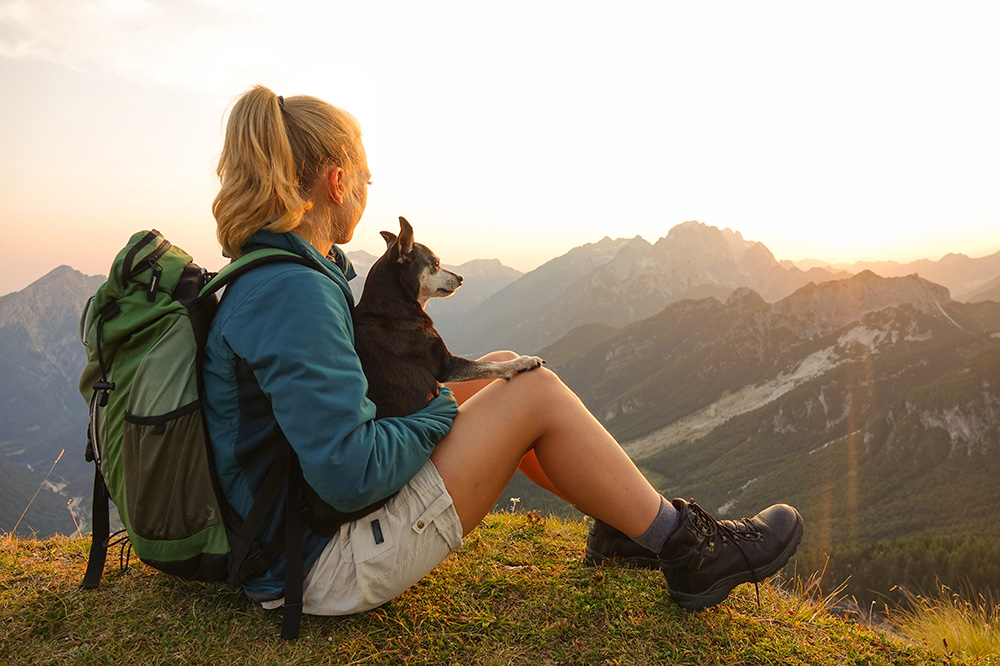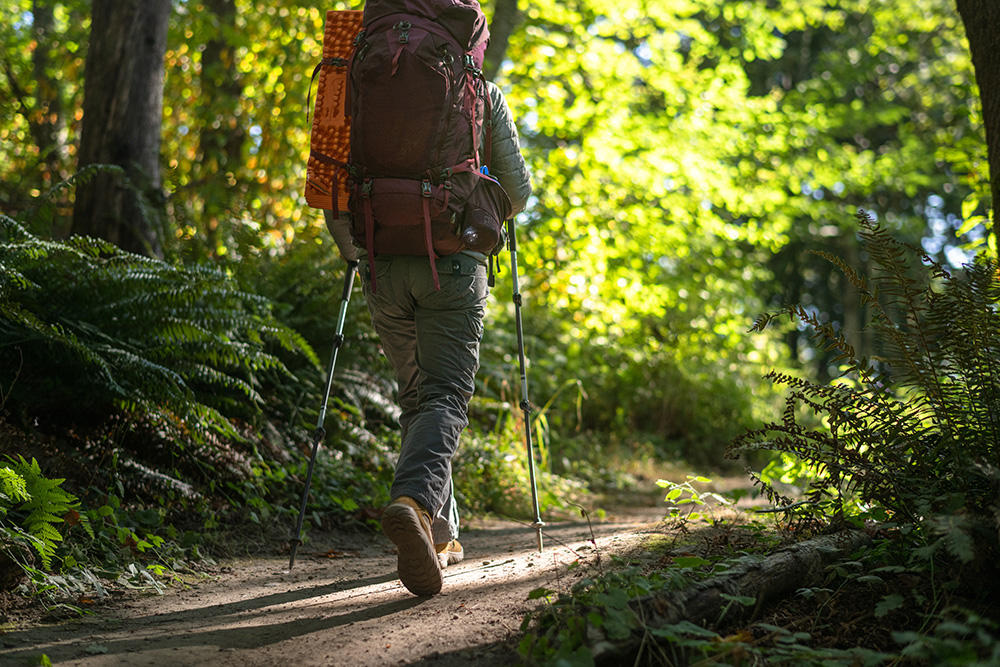Hiking Gear Explained
Learn how to prepare and train for your next hike, as well as hiking etiquette and trail preservation principles.
Home » Hiking 101: The Beginner’s Hiking Guide » Essential Guide to Hiking Backpacks
The Essential Guide to Hiking Backpacks
After a full day of hiking with all of your gear on your back, it is very apparent that choosing the right hiking backpack is crucial for comfort, efficiency, and enjoyment on the trail. Whether you’re embarking on a short day hike or a multi-day adventure, the right pack makes all the difference. Let’s breakdown the key differences between daypacks and backpacks for extended hikes, along with some tips on what to look for in an overnight pack.
"...the right pack makes all the difference."
Daypacks: Choosing the Right Pack for Your Hike
A daypack is an essential piece of gear for any day hike, offering just enough space to carry the essentials like water, snacks, extra clothing, and safety gear. Typically ranging in size from 15 to 30 liters, daypacks are designed for shorter adventures that don’t require the bulk or capacity of larger hiking backpacks. These packs come in a variety of designs, some with additional features like hydration reservoirs, multiple compartments, and padded straps for added comfort.
When it comes to pricing, daypacks vary based on brand, materials, and features. Budget-friendly options can start around $40, offering basic functionality for casual hikers. Mid-range daypacks, often priced between $80 and $150, tend to provide more advanced features like ventilated back panels, adjustable straps, and water-resistant materials. For those seeking premium options with the highest quality and durability, prices can exceed $200, especially for ultralight designs or those made with specialized fabrics.
Some of the top brands known for their reliable and well-designed daypacks include Osprey, Deuter, The North Face, Gregory, and REI Co-op. These brands offer a range of models to suit different hiking needs, from minimalist packs for lightweight travel to more feature-rich designs that offer ample organization and comfort for long day hikes.

Backpacks for Overnight and Multi-Day Treks
Backpacks for overnight hikes or multi-day treks are specifically designed to carry everything you need for extended trips, including a tent, sleeping bag, food, extra clothing, and safety gear. These backpacks typically range in size from 40 to 70+ liters, depending on the length of the trip and how much gear you need to carry. They feature larger capacities, multiple compartments, and reinforced frames to distribute weight evenly, making long-distance hiking more manageable.
When choosing a backpack for overnight or multi-day treks, it’s important to consider factors like size, comfort, and material. For shorter trips (1-2 nights), a 40-50 liter pack may be sufficient, while multi-day treks often require 60+ liters to accommodate gear like cooking supplies, extra food, and additional layers. Look for packs with adjustable hip belts and shoulder straps for comfort and proper load distribution, as well as ventilation to prevent sweat buildup. Water-resistant materials and rain covers are also essential for protecting your gear in unpredictable weather.
Popular brands for backpacking backpacks include Osprey, Gregory, Deuter, Kelty, and REI Co-op. These brands are known for producing durable, comfortable packs that are designed for long-distance hiking. Prices for backpacking packs typically start around $150 for basic models and can go up to $300 or more for premium, lightweight options with advanced features. Investing in a high-quality backpack is crucial for ensuring comfort and stability on longer treks, where carrying a heavy load over varied terrain is the norm.

"The size of the pack depends on the length of your hike."
Key Features of Overnight Packs
1. Size/Capacity
The size of the pack depends on the length of your hike. For a weekend trip, a 40-55 liter pack is ideal. For longer adventures, consider a pack in the 55-70 liter range, which provides more space for food, clothing, and extra gear.
2. Materials
Most high-quality hiking backpacks are made from durable nylon or polyester. Look for packs with ripstop fabric, which is resistant to tearing and abrasion. Water-resistant materials or a built-in rain cover can also be useful in wet conditions.
3. Frame Type
Larger backpacks often have an internal frame for better support and weight distribution. These frames help shift the load to your hips, relieving stress on your shoulders and back. Some ultralight packs may have a frameless design, ideal for minimalist hikers who prioritize weight savings.
4. Comfort Features
Look for packs with padded shoulder straps, adjustable suspension systems, and ventilated back panels. These features enhance comfort by reducing pressure points and allowing airflow between your back and the pack.
Top Brands for Hiking Backpacks
Several brands stand out for their durability, design, and comfort. Here are some key features of each:
Osprey: Known for their innovative designs and adjustable suspension systems, Osprey offers packs for all types of hikes, from day trips to extended adventures.
Deuter: With a focus on comfort and ventilation, Deuter packs are ideal for extended treks, featuring durable construction and ergonomic designs.
Gregory: Offering a range of backpacks with excellent weight distribution and support, Gregory packs are popular among long-distance hikers.
The North Face: This brand offers versatile and durable packs for both casual and serious hikers, often incorporating lightweight materials and thoughtful features.
The Right Backpack for You
Choosing the right hiking backpack depends on the type of hike you’re planning and the gear you’ll need to carry. For day hikes, a lightweight, compact daypack will suffice. For multi-day adventures, opt for a larger pack with a supportive frame and durable materials to ensure comfort and reliability on the trail. Brands like Osprey, Deuter, and Gregory are trusted names that offer a wide range of packs to suit your hiking needs.
Table of Contents
Plan trips
Who are we?
get in touch!
© 2024. All rights reserved. No part of this website may be reproduced without written permission.
